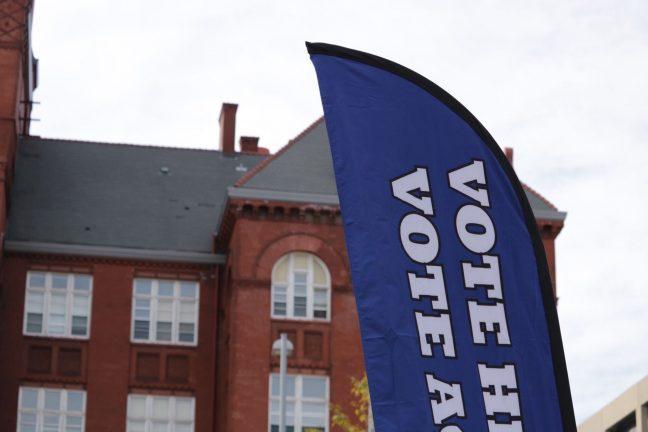In a 4-to-3 decision Friday, the Wisconsin Supreme Court ruled that most absentee ballot drop boxes are not allowed in the state of Wisconsin and a family member or another person may not return a ballot on behalf of the voter.
Chief Justice Annette Kingsland Ziegler, Justice Patience Drake Roggensack, Justice Brian Hagedorn and Justice Rebecca G. Bradley were in the conservative majority opinion.
Though state law does not explicitly address ballot boxes, the majority claimed the absence of such law does not equal legality. Bradley wrote for the majority that ballot drop boxes are “illegal under Wisconsin statutes,” and absentee ballots must be mailed to or delivered in person by the voter to the municipal clerk at the clerk’s office.
University of Wisconsin professor and political behavior expert Michael Wagner said this is a judicial philosophy popular among conservative justices that adheres to the idea that if the constitution does not explicitly allow or forbid something, it is up to the state legislature to decide.
“It’s not a new judicial philosophy,” Wagner said. “What’s new at the federal level is that the people who adhere to it are now in the majority. For years, they had been in the minority or their majority wasn’t strong enough to go as far as the most conservative justices wanted to go.”
The decision comes one month before the Aug. 9 primary and four months before the Nov. 8 general election. This ruling will largely affect November’s election in which Gov. Tony Evers and Republican Sen. Ron Johnson are both up for re-election. Both races are expected to be competitive, according to the New York Times.
According to Wagner, there is speculation from Republicans that Democrats are more likely to use the absentee method of voting. Among these Democrats are Black, Hispanic and disabled voters. According to the Brennan Center, voters of color have disproportionately longer wait times and commutes than white voters.
“The people who are facing systematic barriers to vote on election day are more likely to be Democrats,” Wagner said. “I think that it’s more of a strategic move by conservative groups in the state to make it a little bit harder for some particular populations, who tend to vote for Democrats, to vote.”
These efforts by the Wisconsin GOP to limit voting access to drop boxes are not new. In January, a Waukesha County Circuit Court Judge ruled to make absentee ballot drop boxes illegal in Wisconsin. Evers used his veto power in August 2021 to prohibit Republicans from passing voter restriction bills that would have limited how absentee ballots were returned and by whom, communities’ capacity to host ballot collection events and added identification requirements for voters unable to leave their homes due to age or disability, according to Reuters.
According to Wagner, this decision will have negative reverberations when it comes to voter turnout because these drop boxes made voting less time consuming and more convenient.
“It may be confusing for lots of voters, who for decades have used these ballot drop boxes to vote, and it may be confusing for thousands of voters who used them for the first time during the pandemic,” Wagner said.
According to Wagner, Friday’s decision is likely to make it harder for students to vote.
“Campus groups that seek to get students interested in voting would often use these ballot boxes as an argument to say, ‘Look, it’s not hard. You fill it out, you drop it off any time. You don’t have to wait for Tuesday and you don’t worry about missing classes. You can just go do it when you’re ready,” Wagner said. “Now I think it’s going to increase the barrier for students.”
The National Study of Learning, Voting, and Engagement for the University of Wisconsin showed 39% of students voted using absentee ballots in the 2020 presidential election. The UW campus reached 72.8% voter turnout — a 7.4% increase from the 2016 election, according to the NSLVE.
UW students can register to vote and learn more about the upcoming elections here.


